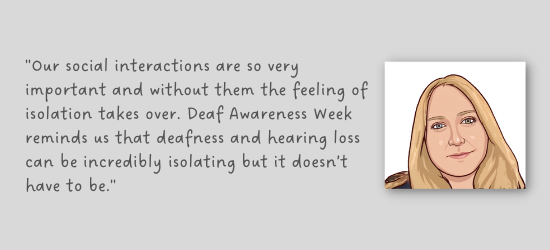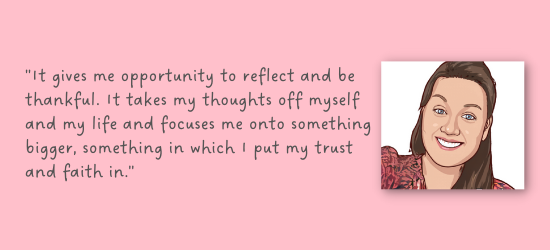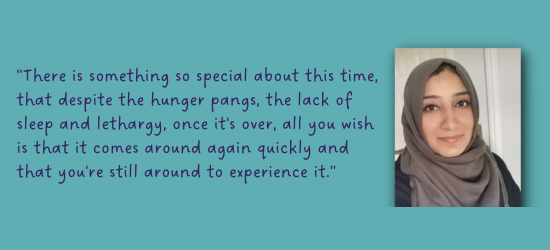Deafness, Inclusivity and Me
Written by Claire
I have never had to write about my experiences of deafness before and I’m keen not to make sweeping statements about ‘all deaf or hearing-impaired people’. As with mental health, the lived experience of deafness is varied. Not every person with hearing loss wants to draw attention to it, where as some people celebrate it as a part of the person they are.
It always shocks people when I say I wasn’t born hard of hearing. I caught measles as a baby but it wasn’t until I was about 7 years old that my parents and my teachers realised I was struggling. My class teacher cried when she was told of my hearing problem – she’d been scolding me for not listening.
I had my fair share of teachers who didn’t know how to deal with it, kids that would sneer about it, and the general feeling of being ‘not like everyone else’. So, by the time I reached upper school I had started to hide it from people. It’s very easy to hide a hidden disability. I was labelled quiet and shy. No one will pick up on what I’m hiding if I don’t say anything.
This tactic doesn’t work as you get older though. You can’t be shy when you’re working in a shop, going to university or socialising. This is when I realised my refusal to wear hearing aids and tell people was really holding me back. When I went to university I met the first person of my age who was like me – she wore her hair up and didn’t hide her hearing aids. Her family was deaf too so it was a shared experience that they all celebrated. It was like a new world to me. But I was too used to hiding it by this point I didn’t know how to do anything else. I still refused to wear hearing aids and went through my entire degree without them. I would go to the lectures as necessary but would avidly read books on the topics to make up for missing half the course content in the auditorium.
In my 20’s I got a great job but I struggled to decide who I could trust to tell. With a hidden disability, I have to actually share this information. I felt, in every new situation, I should have to announce it. “Gather round everyone – I have something to say!” I stupidly wished I had something more visible.
I told a few people and, as I missed things, those people told others. This is when I experienced my first professional example of discrimination. And it was well meant. I was told I wasn’t invited to a work meeting ‘because you would probably really struggle’. Well-intentioned discrimination is something I found harder to deal with. Having someone excessively mouth their words to me in a way that made them even harder to understand was one thing. Being ‘kindly’ left out was another. I began to wear hearing aids.
Now in my 40’s I have learned to accept this part of me that I can’t change, and enjoy the things about it that are a blessing. I sleep in blissful silence, I can switch off the noise whenever I like, I can laugh at myself when I get something really wrong. I can lip read you across a room – watch your language! I work with people who go out of their way to ensure I can hear. People know to look at me and speak clearly if they want to be heard.
The pandemic reminded me just how much I lip read. Suddenly getting a prescription, being served in a shop or trying to hear a taxi driver became a nightmare. I felt awful asking people to pull down the mask but there was just no way I would hear otherwise. But I also noticed I wasn’t the only one. Everyone was struggling to understand each other as masks muffled speech and blocked that friendly smile.
I hope the pandemic taught us all, as it did with mental health, that our social interactions are so very important and without them the feeling of isolation takes over. Deaf Awareness Week this week reminds us that deafness and hearing loss can be incredibly isolating but it doesn’t have to be. It’s an incredible opportunity to think about how you communicate; are you clear, do you turn/walk away when you speak to someone, do you speak quickly, do you mumble? Do you allow for pauses so people can keep up, do you talk over other people? So, have a think about how you communicate this week and try to make small changes that might mean the world to someone who struggles to hear.




